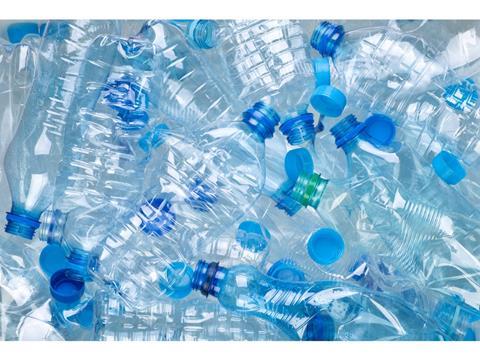
Plastics Recyclers Europe reports the average EU PET beverage bottles’ recycled content rate reached 24%, but that disparities between EU Member States need addressing to achieve 2025 EU targets.
It says 2022 was an unprecedented year for the PET and rPET value chains, as shown in the latest report: PET Market in Europe: State of Play, by Plastics Recyclers Europe, UNESDA Soft Drinks Europe, Natural Mineral Waters Europe (NMWE), Petcore Europe and ICIS Consulting.
Apparently, figures show advancement in the market despite extreme uncertainty. However, the disparities in the collection, sorting and recycling of PET around Europe will need to be addressed to achieve the EU recycling targets in the mid- and long-term.
Plastics Recyclers Europe says PET collection and recycling accelerated in 2022 ahead of the new EU Single-Use Plastic Directive (SUPD) targets. The collection rate of PET in 2022 was calculated at 60%, showing an increase from the 45% achieved in 2020. Furthermore, the sorted for recycling rate for PET beverage bottles alone was estimated to be 75%, compared to 61% in 2020.
This collection rate is expected to continue growing due to the wider rollout of deposit-return systems across Europe. In 2022, 12 countries in EU 27+3 were reported to have this collection method operational, while 9 have taken the political decision to install DRS in the near future.
Almost 2.7 million tonnes of PET waste were sorted for recycling. The total installed recycling capacity was around 3 million tonnes, out of which 1.4 million tonnes were destined for food contact applications.
Packaging was reportedly the dominant end-use for rPET in 2022, with 48% used in bottles. 25% of rPET was used in sheets (trays), and the remainder was used in non-packaging applications including polyester fibres (15%), strapping (6%) and others (6%). The value chain has also already taken steps towards tray recycling and chemical recycling.
Plastics Recyclers Europe states that to continue the trend towards true circularity, the disparities between EU Member States in terms of collection, recycling, and uptake will need to be tackled, as it is unlikely for some countries to meet 2025 targets if no further investment is maintained. Therefore, specific actions per Member State need to be addressed to improve the waste collection and recycling infrastructure and take steps to meet the targets.
It adds that the implementation of the SUPD and further investments in the waste management and recycling sectors will be essential to maintain the competitiveness of the EU’s industry.
In light of Hungary’s new deposit return scheme, Petainer and Oonly released their first refillable PET bottle for mineral water in January, aiming to drive circularity in the country’s beverage sector. Released ahead of Europe’s 2030 target for reuse, the bottle is hoped to introduce a circular solution for beverage packaging to the Hungarian market.
In other news, Aldi and Packamama have produced ‘flat’ wine bottles made entirely from recycled PET, said to streamline both transportation and storage and be almost seven times lighter than glass alternatives. For retailers, the design is set to allow 30% more bottles to be loaded onto pallets for transportation. Compared to traditional round bottles, the flat alternatives aim to take 30% of lorries off the road and lead to environmental benefits without reducing the amount of wine in a pack.
If you liked this story, you might also enjoy:
Report: The ultimate guide to global plastic sustainability regulation
The Brief: Oxo-(bio)degradables: the who, what, and why of breaking down fossil-based plastics
Sustainable Packaging Summit: How Kraft-Heinz uses collaboration to drive innovation
The Brief: Using ocean-bound plastic in packaging – how, why and should we?














No comments yet